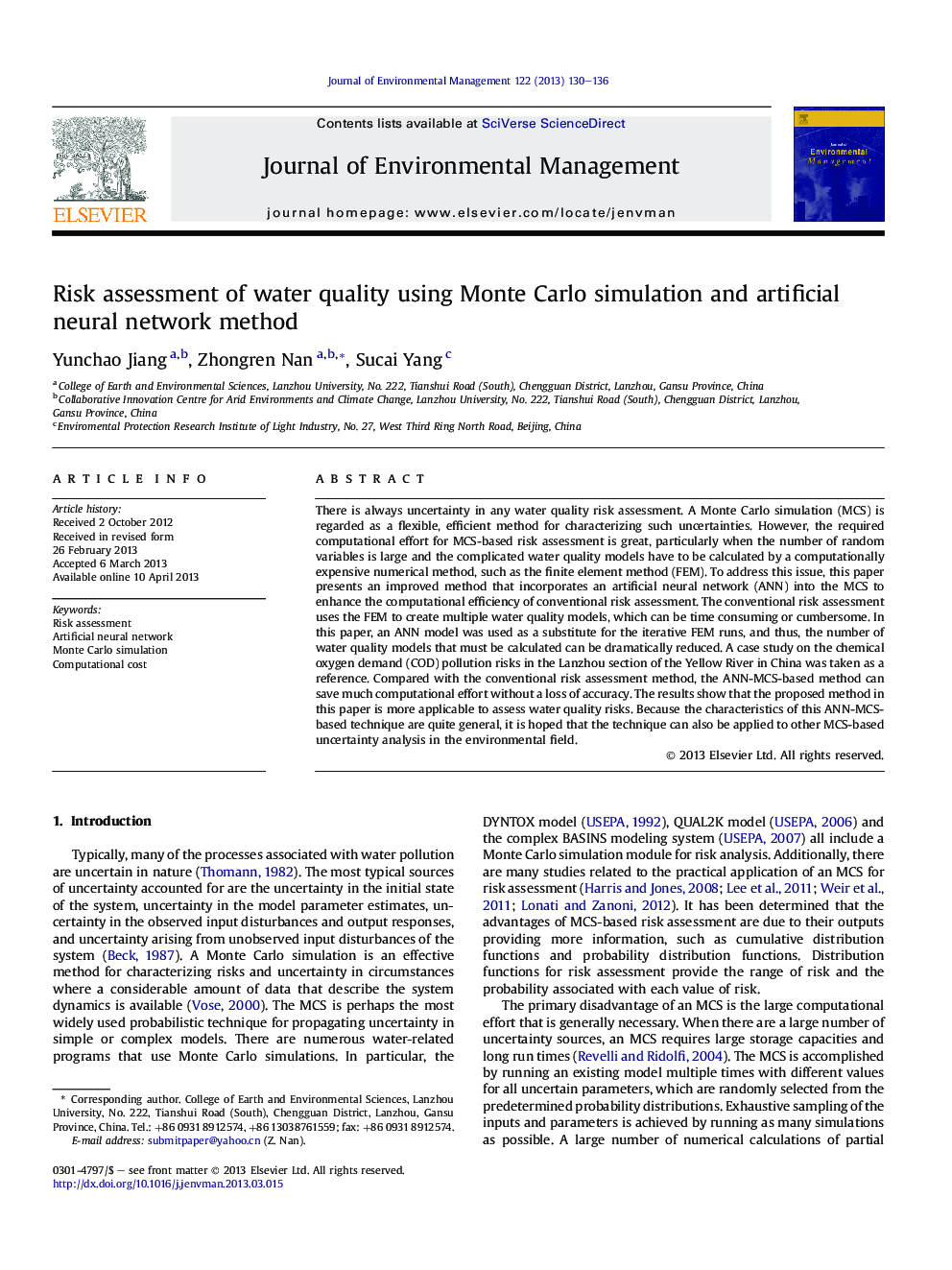| Article ID | Journal | Published Year | Pages | File Type |
|---|---|---|---|---|
| 1056345 | Journal of Environmental Management | 2013 | 7 Pages |
•We propose an ANN-MCS-based method for the risk assessment of water quality.•The case study shows that the method is applicable for the risk assessment of water quality.•The method enhances the efficiency of conventional MCS-based risk assessment.•The method leads to an accurate risk assessment without using simplifying assumptions.•The method is also available for other complex, uncertain environmental problems.
There is always uncertainty in any water quality risk assessment. A Monte Carlo simulation (MCS) is regarded as a flexible, efficient method for characterizing such uncertainties. However, the required computational effort for MCS-based risk assessment is great, particularly when the number of random variables is large and the complicated water quality models have to be calculated by a computationally expensive numerical method, such as the finite element method (FEM). To address this issue, this paper presents an improved method that incorporates an artificial neural network (ANN) into the MCS to enhance the computational efficiency of conventional risk assessment. The conventional risk assessment uses the FEM to create multiple water quality models, which can be time consuming or cumbersome. In this paper, an ANN model was used as a substitute for the iterative FEM runs, and thus, the number of water quality models that must be calculated can be dramatically reduced. A case study on the chemical oxygen demand (COD) pollution risks in the Lanzhou section of the Yellow River in China was taken as a reference. Compared with the conventional risk assessment method, the ANN-MCS-based method can save much computational effort without a loss of accuracy. The results show that the proposed method in this paper is more applicable to assess water quality risks. Because the characteristics of this ANN-MCS-based technique are quite general, it is hoped that the technique can also be applied to other MCS-based uncertainty analysis in the environmental field.
